Following on from our blog post celebrating the early years of the history of Canterbury Christ Church, we have been looking through the archives to find out more about the university’s journey from 0-60.
Institutional Memory
Curating an institution’s memory sometimes feels like a mission impossible. So much happens across the university on a daily basis, we wonder how we can ever record our rich and varied history. Today, as we celebrate International Archives Week, it seems a suitable moment to reflect on what we keep and why we keep it.
According to the Universal Declaration on Archives, adopted at the General Assembly of the International Council on Archives, Oslo, September 2010:
“Archives record decisions, actions and memories. Archives are a unique and irreplaceable heritage passed from one generation to another. Archives are managed from creation to preserve their value and meaning. They are authoritative sources of information underpinning accountable and transparent administrative actions. They play an essential role in the development of societies by safeguarding and contributing to individual and community memory.“
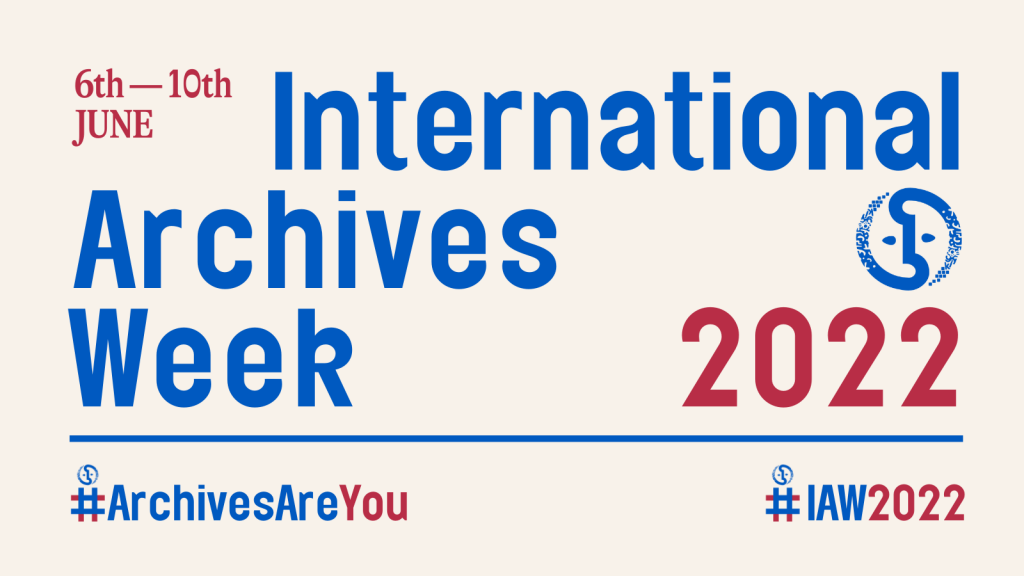
Decisions, actions and memories
As we all know, decisions are made in committees across the university – there are minutes, agendas, and papers which can run into hundreds of pages. Before we had digital storage, these would have been kept in minute books, paper folders and filing cabinets. Some of these made their way to the library, including papers relating to the student’s union and the SCR (Senior Common Room). You can find out about special events, gifts, farewells, college radio, car parking, and curriculum. Memories are more elusive to capture, but the Alumni Team do a good job collecting stories and photos and we have newspaper cuttings, magazines, and an assortment of photos (including this rather amusing one on the right).
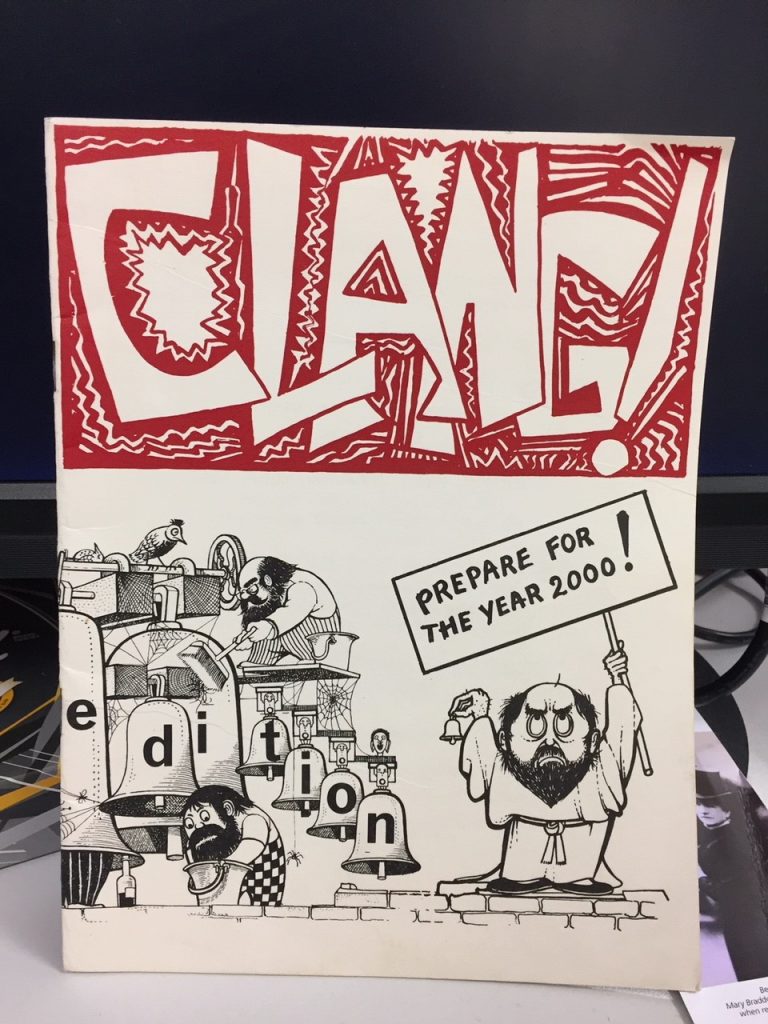
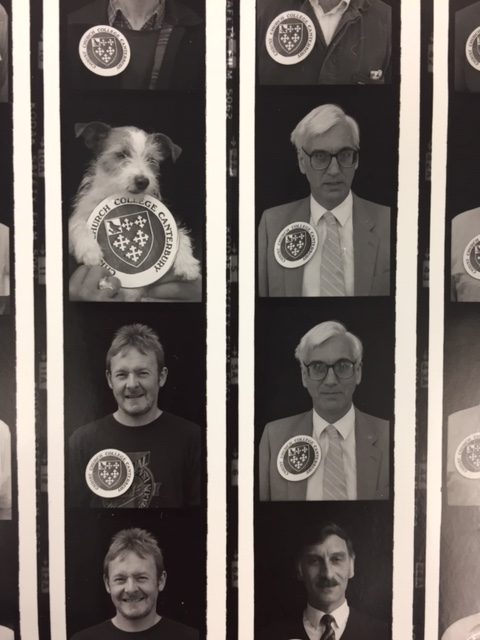
A brief introduction to the university’s archives is available here.
Unique and irreplaceable heritage
Alongside the officialdom, we also have slides of the college excavations which provide an important record of the history of the site. We are in the process of digitizing these so that future generations can enjoy these unique views of CCCU’s past.
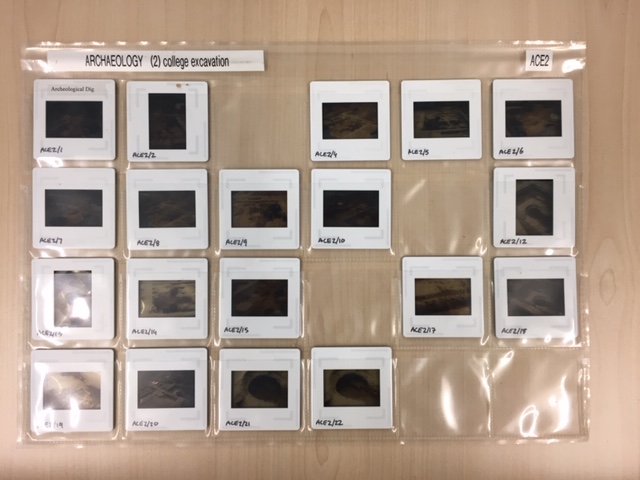
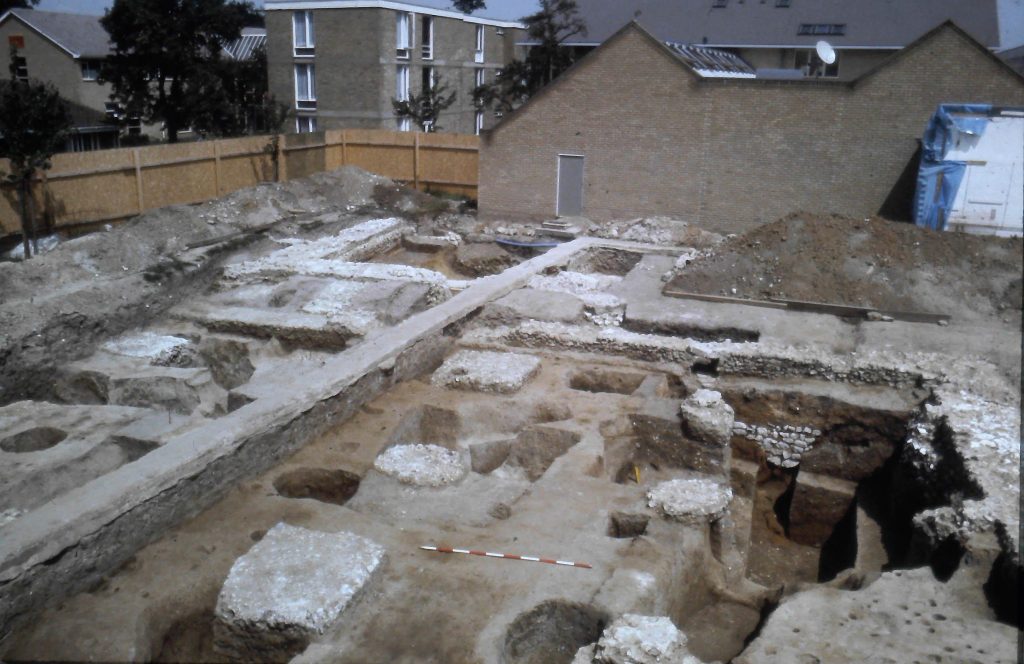
Our slide collection includes photographs of new buildings and documents changes to the campus in the 1980s and 1990s. It has been superseded by digital photography and now images are kept by Estates and Marketing.
Value and Meaning
Archives often privilege structures and hierarchies and present an official record of an organisation, so that we lose sight of the day-to-day. The International Council on Archives (2016) reminds us that “at no point can we regard an archive as ‘the truth’ (whatever we mean by ‘truth’), only as a contemporaneous record from an individual or organisation with a particular level of involvement and point of view.” If we want to record the heart and soul of the university we have to be more proactive in our collecting, but that is easier said than done.
The Covid Years
Personal experiences are often lost to archives but are an important part of what makes an organisation tick. The years 2020-1 will be remembered as extraordinarily sad and difficult, but it’s important that they are documented as part of our institutional memory. Posters, images and text from an exhibition held by the Chaplaincy called Looking Back at Covid have been deposited with the university archive and will be incorporated into our collection as a permanent reminder of the resilience of staff and students at CCCU during those tough two years.
What will we remember of 2022?
Sometimes posters and leaflets make their way to the library and we pop them in our archives. These Epistemic Insight leaflets were found in Old Sessions House, this prospectus was left on a desk after an open day and this postcard of Imagining Dover: A digital exhibition of creative resources was given to us by the project team. All three tell the story of CCCU in 2022. But these are a drop in the ocean compared to the amount of printed and electronic material that is published in the university on a weekly basis, so there are archival gaps, silences in the archives and hidden truths.
If you have any ideas of what you would like to see preserved to represent the history of the university, do get in touch. You can contact michelle.crowther1@canterbury.ac.uk @HumLib_cccu
Featured image by Gerd Altmann from Pixabay
 Library
Library Michelle Crowther
Michelle Crowther 1386
1386
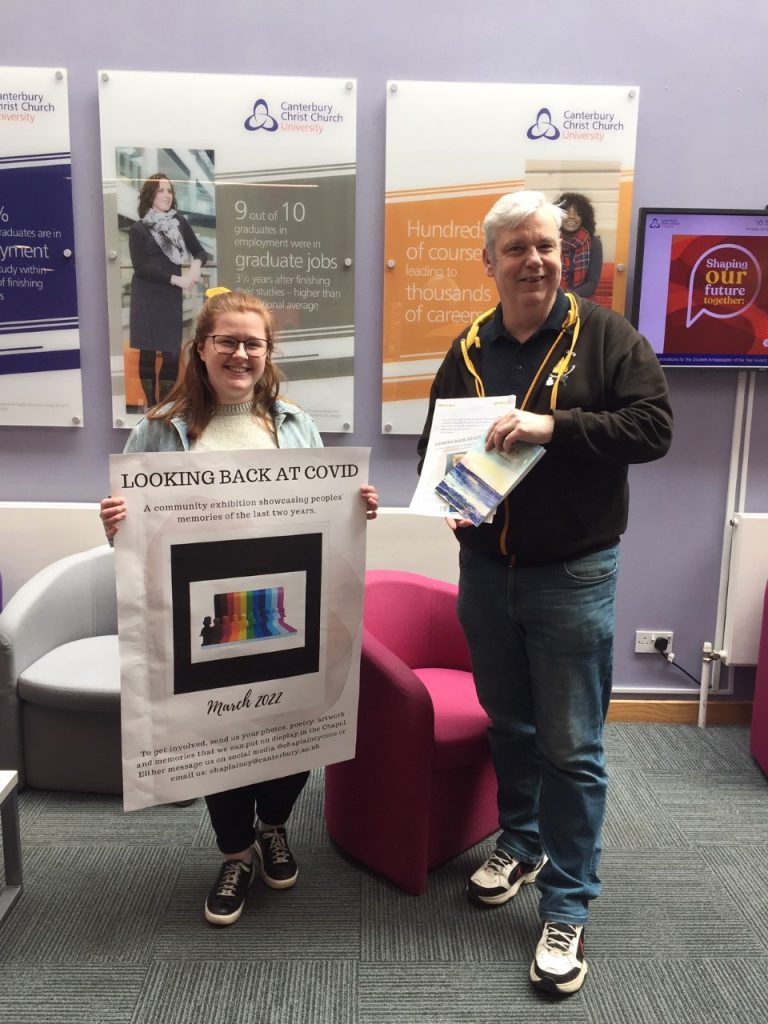
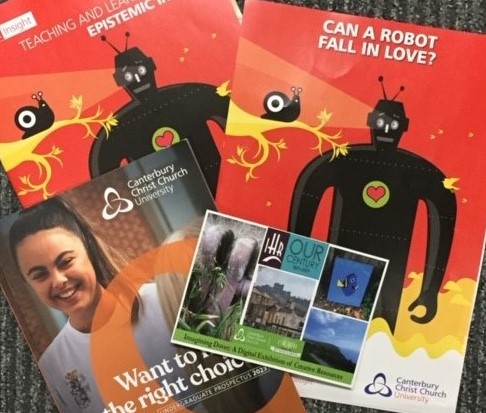



thanks for the great article